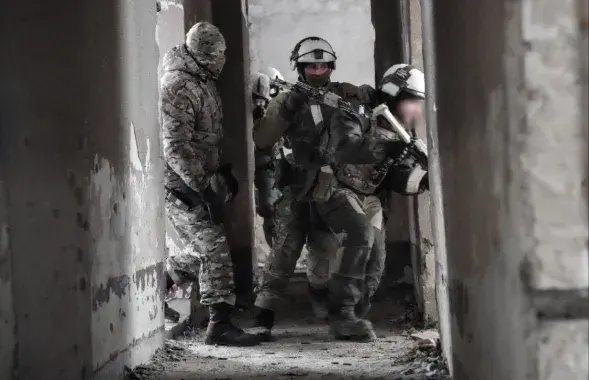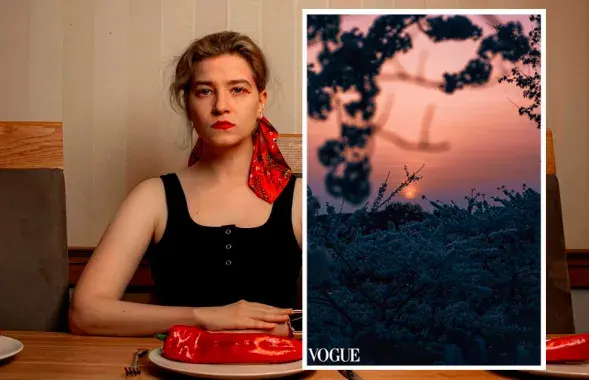Chaly: We could get an interesting benefits swap with Russia
Does Belarus keep chances to enter the World Trade Organization soon? Why is it benefitial for Russia enter WTO along with Belarus and why will Russia not do that? How does Minsk plan to cope with the external debt growth -- Problem 2012? Euroradio expert Syarhei Chaly is reflecting on these issues in this report.
Customs union not a hurdle for joining WTO
Syarhei Chaly: It is believed that Russia has moved the farthest on the way of joining the World Trade Organization (WTO). Russia seems to have resumed talks over WTO membership and might even manage to enter WTO by late this year. It is hard to say for sure. But, one can say with confidence that Belarus has not really lagged behind so much. If there was political will...
Euroradio: What should be done with our current membership in the Customs Union of Belarus, Russia and Kazakhstan?
SC: Naturally, Customs Union will not enter anywhere just by itself. That was exactly the way of not entering anything due to the grudge against the United States which delayed Russia joining WTO. But, we need to join and to join separately as soon as possible before the Doha Round ends. If WTO new member states introduce some additional requirements, we will have to begin work in order to meet them from scratch.
The Customs Union renders us no help or use in order to enter WTO.
Doha Round
is the current trade-negotiation round of the World Trade Organization (WTO) which commenced in November 2001. Its objective is to lower trade barriers around the world, which allows countries to increase trade globally. As of 2008, talks have stalled over a divide on major issues, such as agriculture, industrial tariffs and non-tariff barriers, services, and trade remedies.[1] The most significant differences are between developed nations led by the European Union (EU), the United States (USA), and Japan and the major developing countries
led and represented mainly by China, Brazil, India, and South Africa.
There is also considerable contention against and between the EU and
the USA over their maintenance of agricultural subsidies—seen to operate effectively as trade barriers.In June 2009, WTO director-general, currently Pascal Lamy expressed hope that the Doha Round would be complete by 2010, but negotiations are still under way.
E: So, is this a hurdle?
SC: Hardly. The structure of our economy creates no problem for the process of entering WTO. You don't have to be a market economy in order to enter WTO! For instance, Cuba has been there for long time. Hungary had been member of GATT before WTO. The main thing in WTO is the freedom of movement and protection of investments.
The process there is like this. There is a working group of interested countries. All issues are agreed on with them. And, the agreements, which are concluded as a result, become a basis for cooperation with the rest of countries. So, out of all the countries which have not joined WTO, we have the smallest working group with some 30 countries. And we have agreed on all the issues with nearly a half of those countries. But, in case of Belarus, this movement was suspended due for political reasons.
It would be advantageous to Russia to enter WTO along with us
Euroradio: Nevertheless, certain projects regarding the membership in WTO as the Customs Union were discussed. Was it all serious?
Syarhei Chaly: There is such an interesting version... Not mine. Nevertheless, we know that the major issue that WTO has with us is the issue of the state support to our agriculture, which accounts for at least 8-10 percent of GDP. These are direct targeted subsidies which are tangible. But, there are numerous indirect subsidies, which account for ¼ of GDP.
In principle, it is allowed to provide support to the agricultural sector in the framework of WTO. But, direct subsidies, being a protectionist measure, must be limited. And, Belarus argued how these measure could be defined. There are green, blue and yellow baskets. Yellow means banned targeted subsidies and trade positions. Green means support to infrastructure, credits, etc. -- the simplest.
E: You have started from very far. What does agriculture have to do with all this?
SC: If a nation is a WTO member, it is granted a preferential period when customs duties are gradually reduced. The duration of that period is calculated from the size of subsidies that were in effect in the country a couple of year before entering WTO. Correspondingly, the higher the subsidies, the longer we can preserve subsidies.
Let's take a look at Russia. There are almost no agricultural subsidies in Russia. They are significantly lower than in Belarus, because during the years of the 'wild capitalism', their agriculture was abandoned. Now they face the problems with dairy products, etc., but this is not essential here...
E: ...the essence is if it was possible to enter WTO along with Russia, we could share a preference based on our significant subsidies for agriculture with Russia and Kazakhstan.
SC: I could be an interesting exchange, because ¼ of GDP for state subsidies is too expensive for us. And we have tried to cut these expenditures not because we want to end up at WTO, but because we simply do not have enough money. Without low prices for Russian energy resources, we will not be able to provide these subsidies. While Russia will not get preferences in WTO without us.
E: Does Russia realize this opportunity?
SC: Apparently, Russia has restored the process of entering WTO unilaterally. After all, Medvedev really wants it this way. Putin, on the opposite, is more interested in moving towards WTO as the Customs Union. But, it is unclear how thi can be done legally. But, Medvedev wants to strengthen his personal success in improving relations with Barak Obama through entering WTO independently. And, Medvedev is current Russian president.
Problem 2012
SC: Russia was confident that Belarus would not run away. Russia decided it could resort to an open pressure because it thought we could be easily defeated. But it did not turn out this way. In terms of finances, IMF removed Russia's threat by issuing the $1 billion loan.
E: There have been some talks about a $15-billion loan from China...
SC: Yes. Partially, it will be a interstate loan. Partially, there will be a loan from Eximbank for innovation projects. Even if 1/3 of the loan will be interstate, this will allow us to solv the problem of 2012/2013. The problem is that the cost of servicing the external debt will increase sharply during that period.
The grace-period for $3.5-billion loan from Russia we received in 2007 is ending. Payments on the IMF loan will also be in the same period. So, if we manage to use the Customs Union tactically in order to soften the energy divide with Russia, we will carry out a strategic task of financial survival.
Photo: Belorusskiye novosti

















